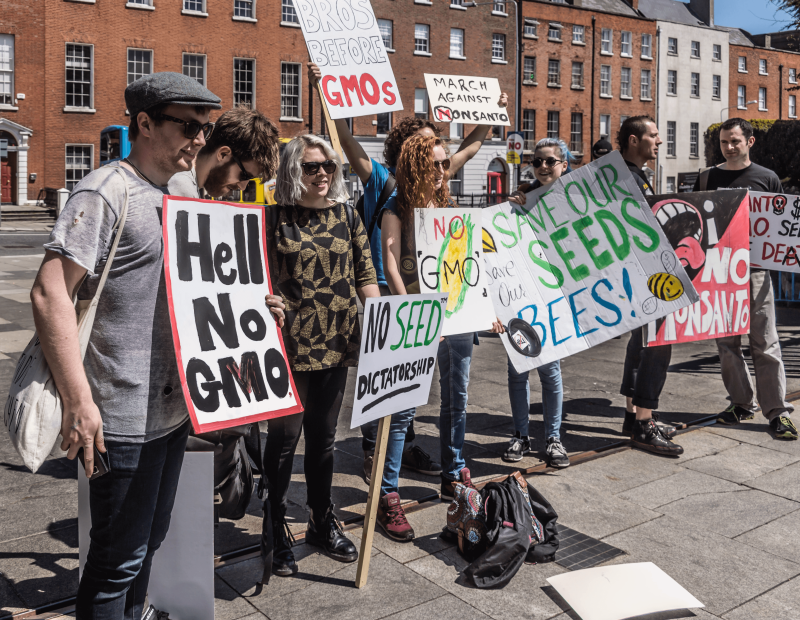Viewpoint: Braying false concerns of critics — 30 years along, still no evidence that GMOs pose any health or safety issues
Viewpoint: Braying false concerns of critics — 30 years along, still no evidence that GMOs pose any health or safety issues


The first GMO food was approved in 1994 (a GMO tomato that is no longer on the market), so we are getting close to 30 years of GMOs. Opponents of GMOs falsely claim that they have not been studied enough (there is more evidence for their safety than other food products) and that there may be long term unknown risks. They were wrong 30 years ago, but it was at least true that GMO introduction into the food market and animal feed was new. But the “new” argument, by necessity, doesn’t age well. By now, if there were any actual risk to GMO foods, we would likely be seeing the result – and we are not.
Each bioengineered crop is studied for safety, to ensure that they do not introduce any new allergens or toxins. They are more studied than non-bioengineered crops, even those produced through mutation breeding. The claim that they are not adequately studied is simply wrong and hypocritical.
…
To date there have been over 3,000 studies looking at the health and environmental safety of GMO crops, without any evidence of harm or a legitimate safety issue. Based on this evidence, 280 scientific organizations around the world have declared that GMOs are just as safe as non-GMO foods and present no special risk. There is, in fact, an overwhelming scientific consensus that GMOs currently on the market are safe and pose no threat to the environment.
This is an excerpt. Read the original post here

 | Videos | More... |

Video: Nuclear energy will destroy us? Global warming is an existential threat? Chemicals are massacring bees? Donate to the Green Industrial Complex!
 | Bees & Pollinators | More... |

GLP podcast: Science journalism is a mess. Here’s how to fix it

Mosquito massacre: Can we safely tackle malaria with a CRISPR gene drive?

Are we facing an ‘Insect Apocalypse’ caused by ‘intensive, industrial’ farming and agricultural chemicals? The media say yes; Science says ‘no’
 | Infographics | More... |

Infographic: Global regulatory and health research agencies on whether glyphosate causes cancer
 | GMO FAQs | More... |

Why is there controversy over GMO foods but not GMO drugs?

How are GMOs labeled around the world?

How does genetic engineering differ from conventional breeding?
 | GLP Profiles | More... |

Alex Jones: Right-wing conspiracy theorist stokes fear of GMOs, pesticides to sell ‘health supplements’




 Viewpoint — Fact checking MAHA mythmakers: How wellness influencers and RFK, Jr. undermine American science and health
Viewpoint — Fact checking MAHA mythmakers: How wellness influencers and RFK, Jr. undermine American science and health Viewpoint: Video — Big Solar is gobbling up productive agricultural land and hurting farmers yet providing little energy or sustainabilty gains
Viewpoint: Video — Big Solar is gobbling up productive agricultural land and hurting farmers yet providing little energy or sustainabilty gains Fighting deforestation with CO2: Biotechnology breakthrough creates sustainable palm oil alternative for cosmetics
Fighting deforestation with CO2: Biotechnology breakthrough creates sustainable palm oil alternative for cosmetics Trust issues: What happens when therapists use ChatGPT?
Trust issues: What happens when therapists use ChatGPT? California, Washington, Oregon forge immunization alliance to safeguard vaccine access against federal undermining
California, Washington, Oregon forge immunization alliance to safeguard vaccine access against federal undermining 30-year-old tomato line shows genetic resistance to devastating virus
30-year-old tomato line shows genetic resistance to devastating virus The free-range chicken dilemma: Better for birds, but with substantial costs
The free-range chicken dilemma: Better for birds, but with substantial costs ‘You have to treat the brain first’: Rethinking chronic pain with Sanjay Gupta
‘You have to treat the brain first’: Rethinking chronic pain with Sanjay Gupta
